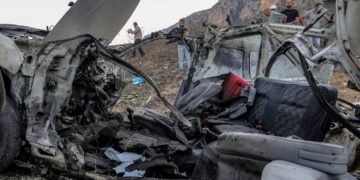Thousands of Palestinians chanted against Hamas during anti-war protests last week in the Gaza Strip, the biggest show of anger at the militant group since its attack on Israel ignited the war.
Protesters said they were venting anger and desperation as they endure a new round of war and displacement after Israel ended a ceasefire. They leveled unusually direct criticism at Hamas even while remaining furious at Israel, the United States and others for their plight.
Public expressions of dissent have been extremely rare since Hamas seized power in Gaza in 2007. The militant group has violently dispersed occasional protests and jailed, tortured or killed those who challenged its rule. Hamas has faced no significant internal challenge since the start of the war and still controls Gaza, despite losing most of its top leaders and thousands of fighters.
There is also nearly universal anger at Israel, whose offensive has killed tens of thousands of Palestinians and flattened entire neighborhoods. Israel has blocked all humanitarian aid for a month and renewed its offensive. Israel blames the high death toll on Hamas because it operates in densely populated areas, accusing it of showing no concern for Palestinian civilians.
“The protest was not about politics. It was about people’s lives,” said Mohammed Abu Saker, a father of three from the bombed-out town of Beit Hanoun who joined a demonstration. “We can’t stop Israel from killing us, but we can press Hamas to give concessions.”
Nearly all Palestinians support some form of resistance to Israel’s military occupation and expansion of settlements — which predate Hamas’ founding in the 1980s.
In general, support for Hamas in the occupied West Bank and Gaza tends to increase when it battles Israel and subside during periods of relative calm.
The Palestinian Center for Policy and Survey Research, which has conducted scientific polling in Gaza and the West Bank for decades, found before this war began that about equal numbers of Palestinians supported Hamas and the secular Fatah movement led by President Mahmoud Abbas, who recognizes Israel and cooperates with it on security.
But polls taken since the start of the war show Hamas has been consistently more popular than Fatah. The change is particularly pronounced in the West Bank, where support for Hamas rose immediately after the Oct. 7, 2023, attack. Hamas-led militants killed some 1,200 people that day, mostly civilians, and took 251 hostages.
In Gaza, the polls provide some evidence that support for Hamas rose slightly in the immediate aftermath of the attack, but since then has returned to about where it stood previously. Hamas has not had the support of most Palestinians, in either territory, either before or after the war began.
Wartime polling in Gaza is especially challenging due to a lack of access to some regions and mass displacement. There is also potentially even more pressure on respondents to answer a particular way.
Tahani Mustafa, senior analyst at the International Crisis Group, said it’s difficult to gauge Hamas’ support. “I wouldn’t say it’s either popular or unpopular at this point in time,” she said.
media contacted dozens of Palestinians about Hamas in recent months. The vast majority declined to be interviewed or requested anonymity, fearing retribution from Hamas — or from Israel if they voiced support for the group. Many said they were just struggling to stay alive.
Israel’s offensive has killed over 50,000 Palestinians, according to Gaza’s Health Ministry, which does not say how many were civilians or combatants. The ministry is led by medical professionals but reports to the Hamas-run government. Its toll is seen as generally reliable by U.N. agencies and independent experts, though Israel has challenged its numbers.
Israel says it has killed some 20,000 militants, without providing evidence. Hamas has not disclosed the full extent of its losses.
Hamas has violently suppressed dissent since seizing power from the Palestinian Authority —led by Fatah. Rights groups say both Palestinian authorities crack down on protests and detain and torture critics.
In the past, Hamas has killed people it accused of being collaborators with Israel, as well as some who have challenged its rule. There are no confirmed reports of anyone being killed for taking part in the latest protests.
Israel and Western nations consider Hamas a terrorist organization because of its long history of attacks that have killed Israeli civilians.
Gaza residents, speaking on condition of anonymity out of security concerns, say plainclothes Hamas security men have patrolled the territory throughout the war, maintaining law and order while also quashing dissent.
But Hamas’ detractors may have other reasons for staying quiet.

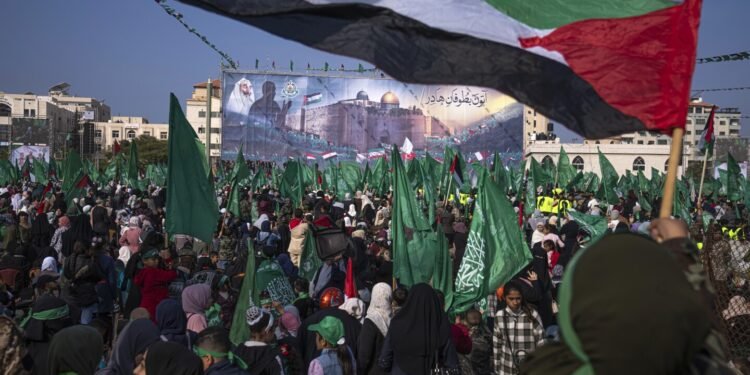
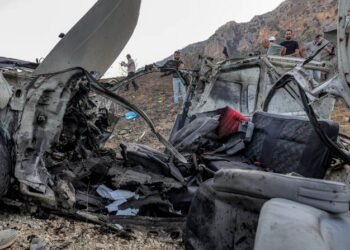



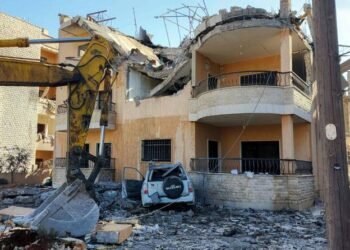
 United Arab Emirates Dirham Exchange Rate
United Arab Emirates Dirham Exchange Rate